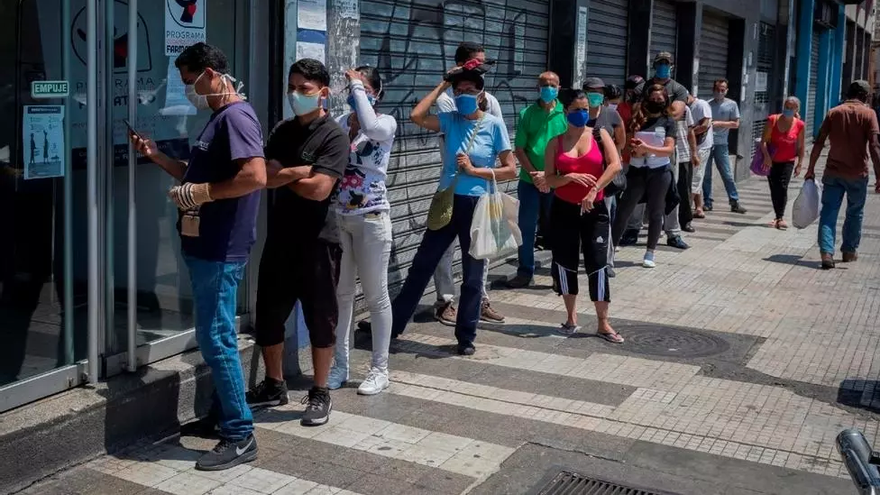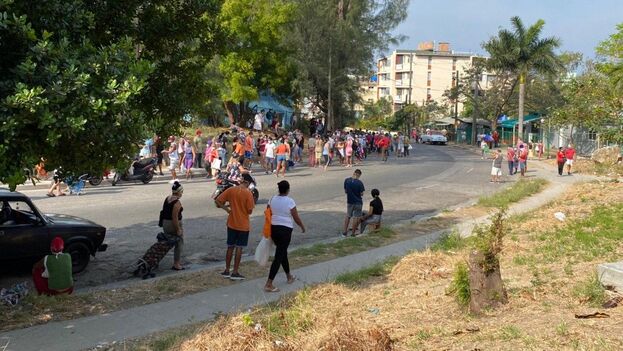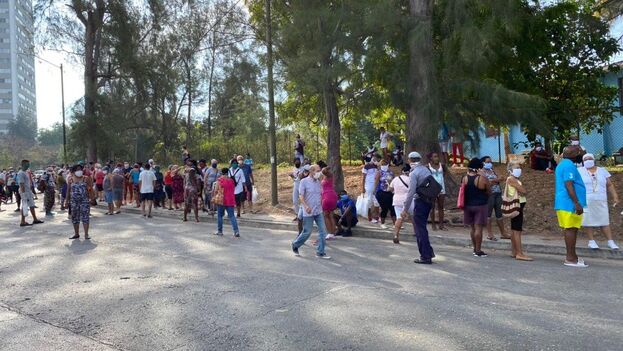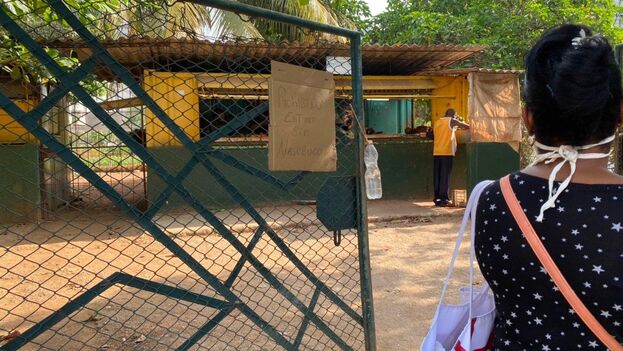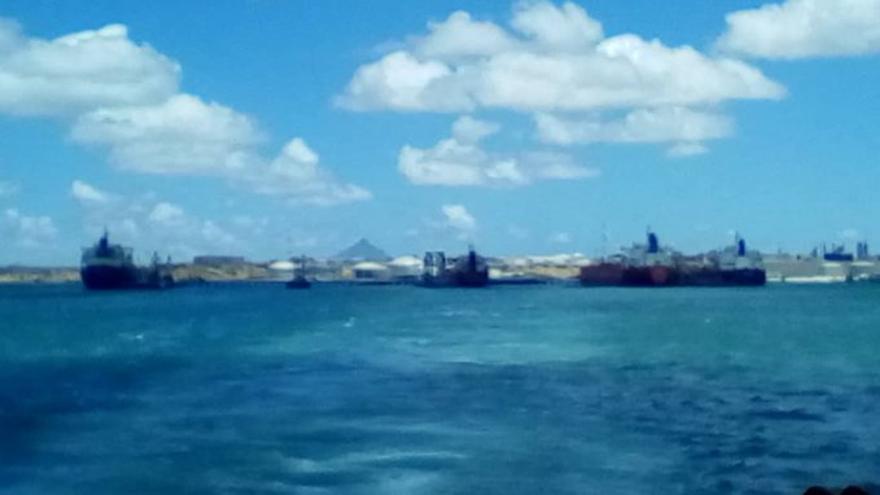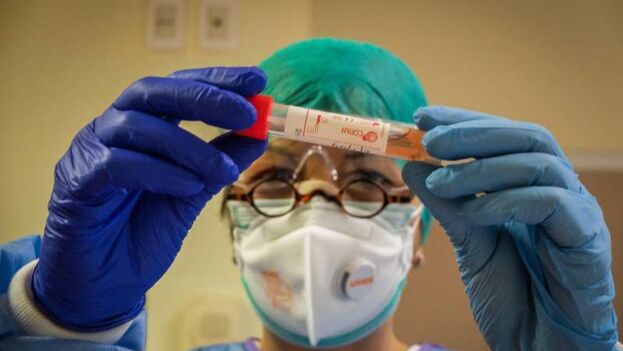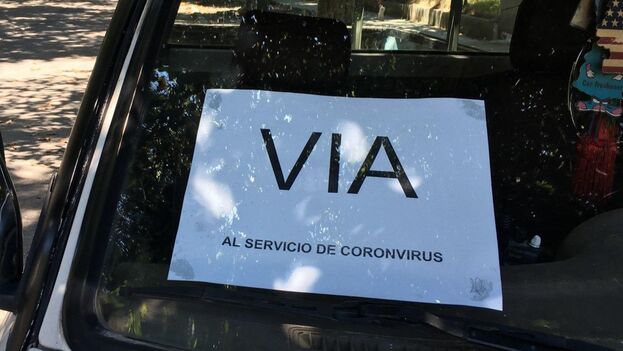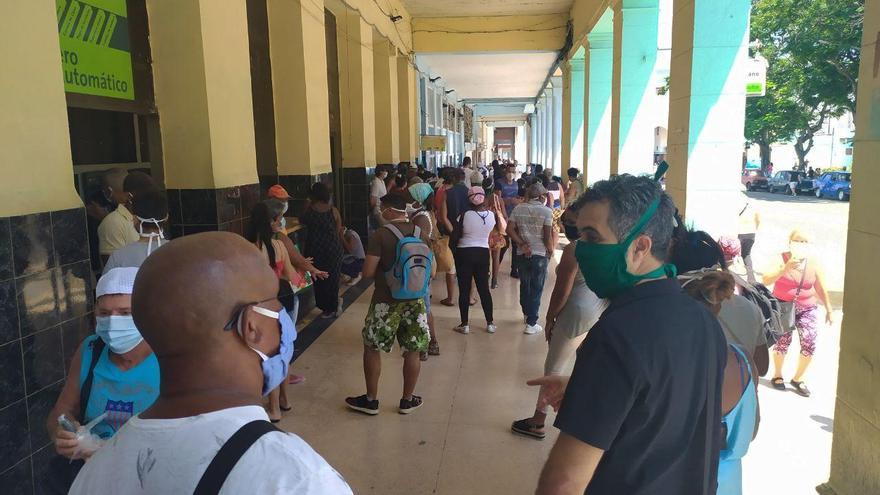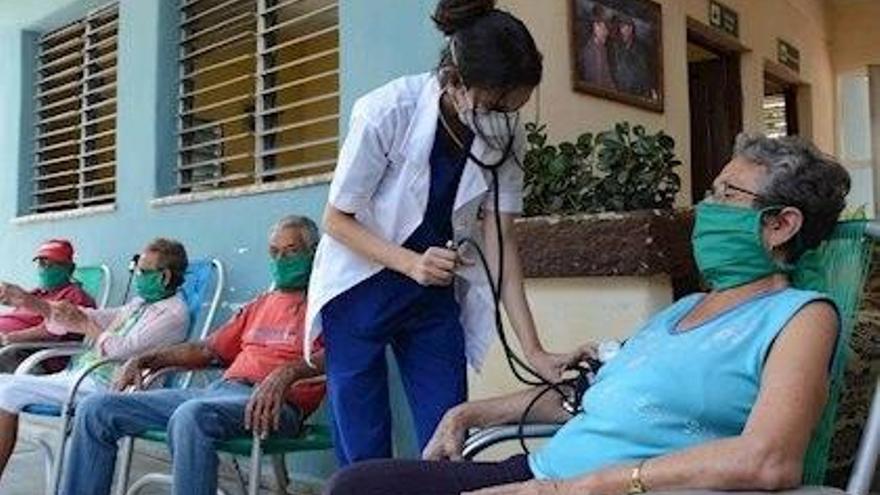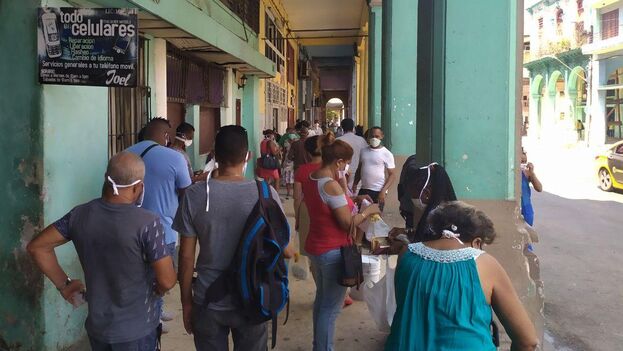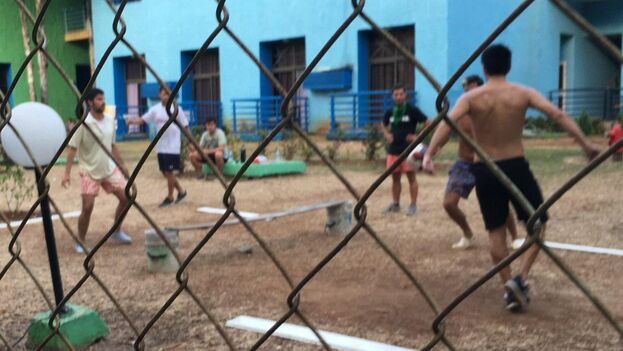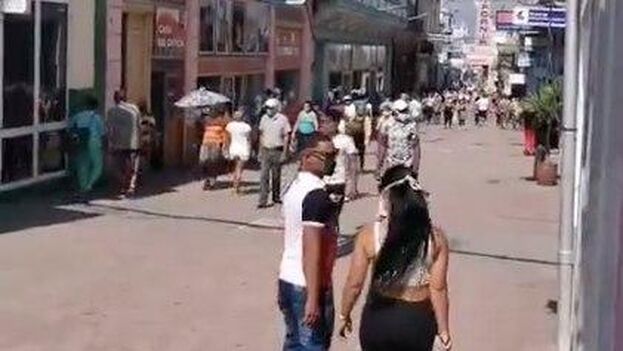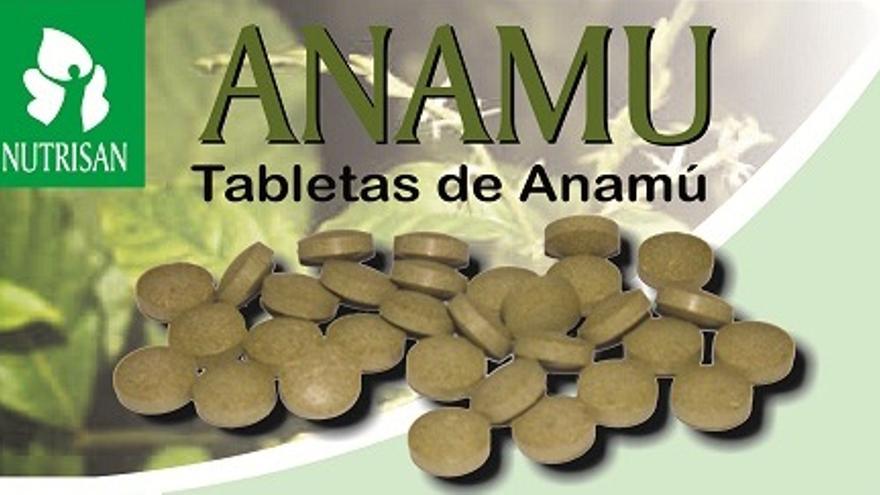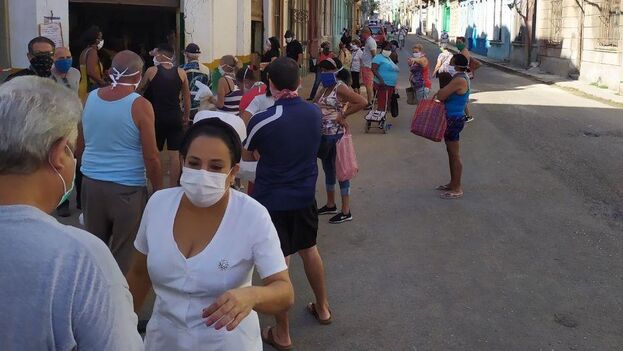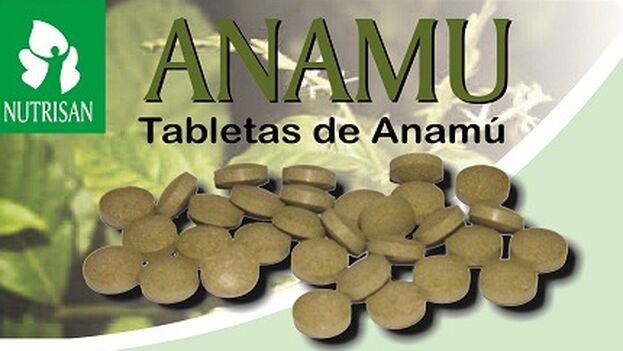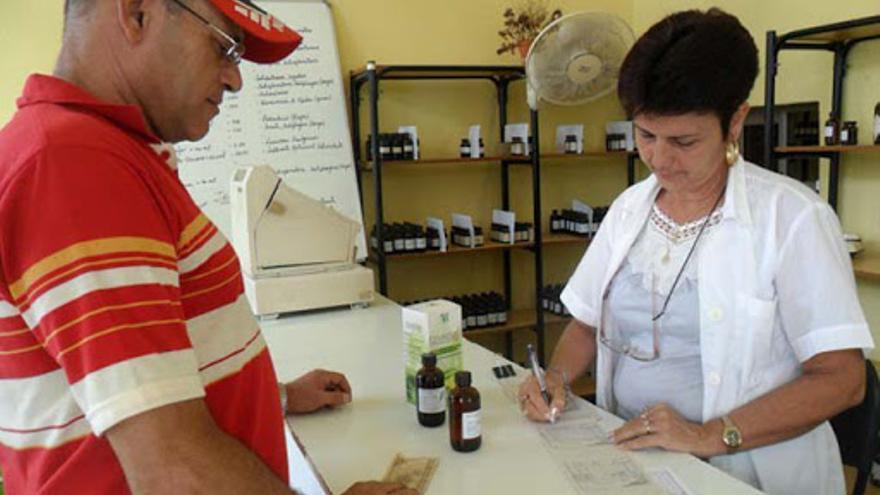
![]() 14ymedio, Havana/Madrid, 7 April 2020 — A homeopathy debate is in its infant stage in Cuba. But arguments grew more intense last weekend after Francisco Durán, national director of the Public Health Ministry’s Sanitation and Epidemiology Department, announced the availabaility of PrevengHo-Vir, a homeopathic preventive product to strengthen defenses against the coronavirus. He also warned that the product “does not prevent infection, nor eliminate the need for protective measures” such as hand-washing and social distancing.
14ymedio, Havana/Madrid, 7 April 2020 — A homeopathy debate is in its infant stage in Cuba. But arguments grew more intense last weekend after Francisco Durán, national director of the Public Health Ministry’s Sanitation and Epidemiology Department, announced the availabaility of PrevengHo-Vir, a homeopathic preventive product to strengthen defenses against the coronavirus. He also warned that the product “does not prevent infection, nor eliminate the need for protective measures” such as hand-washing and social distancing.
In a press conference, the doctor said that the product — which patients take under the tongue — helps to prevent various illnesses such as influenza, the common cold, dengue and emerging viral contagions. “Organized distribution throughout the population is planned,” Durán specified.
Initially, the product will be provided via the primary care system to the elderly and to those in the at-risk category, and later to the rest of the population. The medication, manufactured by state-owned BioCubaFarma, is a hydro-alcohol solution “with homeopathic plant, mineral, animal and biological strains,” said Diadelis Ramírez, a researcher at the Center for State Control of Medication Quality (Cecmed). continue reading
The officials stated that “scientific journals have been published in which this has a demonstrated effect,” but they did not provide details. Cuban medical schools and the public health systrm have promoted homeopathy for decades. They explain it partly as a response to the medication shortage. The official press has not given any space to those who openly criticize this practice. And most Cubans have not had access to sources that reject homeopathy as junk science.
This not the first time that Cuban officials resort to a kind of product that, as Durán said, is “very innocuous.” These fake remedies were deployed against cholera outbreaks on the island in 2012 and 2013.
The debate has surfaced on social media and has drawn attention to events in a country with which Cuba maintains close ties — a country that has staked out a position on the other side, and which has been leading a European fight against homeopathy for the past two years. That country is Spain.
Spain has tried several times to regulate homeopathy, in line with a European directive of 2001. But the country never came as close as it did in May, 2018, when Dolors Montserrat of the Partido Popular, then the Health, Social Services and Equality Minister, approved an order that allowed pharmacies to sell homeopathic remedies as medications, although a report by the ministry admitted that these products did not cure ailments. The entire political opposition, including the Ciudadanos party (liberal, a PP partner in several autonomous and local administrations), raised an outcry.
“The very term, ’homeopathic medication,’ is self-contradicting,” Teresa Giménez, a Ciudadanos member of the European Parliament, told the minister. “A medication has to have some effect on an illness, and homeopathy defines itself correctly as a product that is so diluted as to be innocuous.”
The Cochrane Library, an online collection of medical databases, has just published its seventh study contradicting homeopathy. It was the latest of an endless series of refutations of a pseudo-therapy born in Germany more than 200 years ago. Created in 1796 by Samuel Hahnemann, the method is based on the dilution of natural substances into infinitesmally small doses. Medical literature has concluded that its only property is the placebo effect.
The Spanish government that took office in 2018 includes two active opponents of homepathy. One of them, Science Minister Pedro Duque, the first Spanish astronaut, explained his position bluntly last year: “It is clear, from current regulations, that you can’t tell a pharmacy not to sell candy. There’s no problem putting homeopathy in the same category as candy.”
In 2016, the University of Barcelona canceled its homeopathy master’s degree program “for lack of scientific basis” And two years ago, all Spanish universities — acting on their own, not by governmental decree — canceled homeopathy studies. Only private organizations offer any courses in the subject.
The war against homeopathy came to Brussels in September, 2017, when the Spanish government urged the EU to change its legislation, a measure that had never been taken at that level. Spain condemned the fact that “there have been cases of cancer patients dying after giving up scientifically based treatment for homeopathic products.” Current regulations were a “health risk” to citizens, the Spanish government said.
The homeopathic industry has been growing. And, organized into strong lobbying groups, it has been earning millions, billing more than 60 million euros a year in Spain, with tax-exempt status, as if its products were medications. The exemption is based on the sole certainty that homeopathic products are not harmful. However, danger arises when a patient stops taking a medication under the belief that homeopathy can replace it. In 2017, a child in Italy died after being treated homeopathically for an ear infection.
In recent years, various European countries have taken the same path. The United Kingdom stopped financing homeopathy in its public health system in 2018. France will withdraw public subsidies of these products in 2021. Currently, the French public health system reimburses 30 percent of the cost of some 1,200 homeopathic products. That support represents nearly 127 million euros taken from the national budget, and from taxpayers’ pockets. Meanwhile, here in Cuba, the government itself manufactures and promotes these products.
Translated by Peter Katel
_________________
COLLABORATE WITH OUR WORK: The 14ymedio team is committed to practicing serious journalism that reflects Cuba’s reality in all its depth. Thank you for joining us on this long journey. We invite you to continue supporting us by becoming a member of 14ymedio now. Together we can continue transforming journalism in Cuba.

